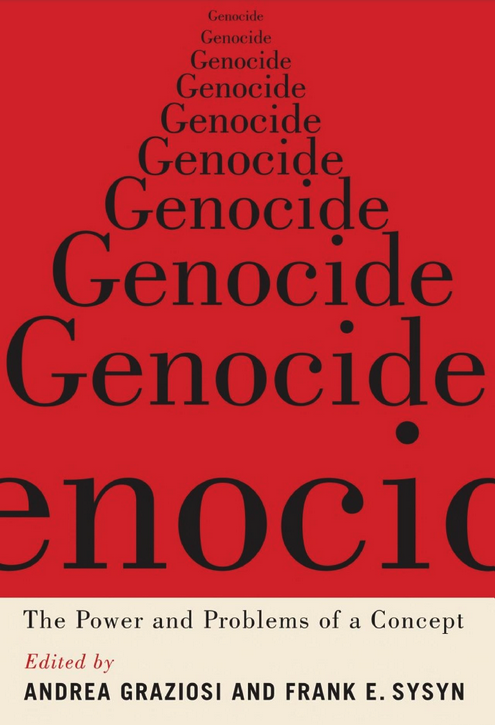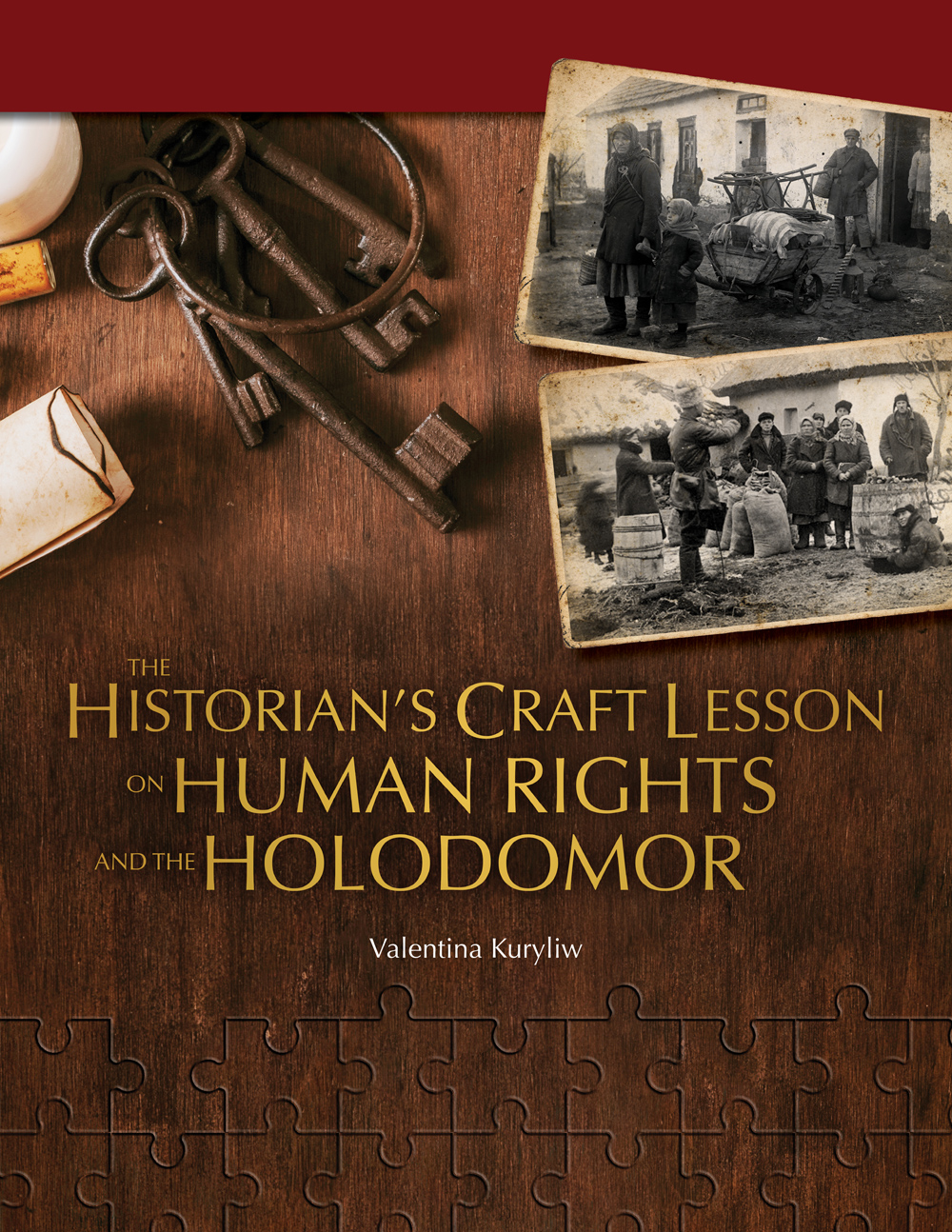Genocide Remembrance, Condemnation and Prevention Information and Resources
April is genocide remembrance, condemnation and prevention month
![]() The following are just a few select resources when it comes to our Institute's research and development output. We recommend that you visit the websites of both the Holodomor Research and Education Consortium (HREC) and HREC Education for a wide-ranging choice of genocide awareness learning materials and activities. There are also organizations such as the Lemkin Institute for Genocide Prevention which monitor threats and acts of genocide across the globe, including within Ukraine.
The following are just a few select resources when it comes to our Institute's research and development output. We recommend that you visit the websites of both the Holodomor Research and Education Consortium (HREC) and HREC Education for a wide-ranging choice of genocide awareness learning materials and activities. There are also organizations such as the Lemkin Institute for Genocide Prevention which monitor threats and acts of genocide across the globe, including within Ukraine.
For schools and community educators:
HØLØDØMØR animated video
Ukrainian visual communication designer, artist and Fulbright Scholar Yuliya Fedorovych is making her 2023 poetic animated video HØLØDØMØR available for education and community use.
Using visual language that reclaims the style of Soviet constructivist posters, the imagery reinterprets and animates traditional Ukrainian embroidery while depicting the history and consequences of the genocide of the peoples of Ukraine orchestrated by the Soviet Union. It is set to the unforgettable world music score of acclaimed Ukrainian "ethno-chaos" band, DakhaBrakha. The video short is based on Yulia's series of 10 interactive posters which utilize augmented reality and can be downloaded and printed for educational use.
"This series recontextualizes the colors and typography of Soviet propaganda posters, a style that's had significant influence on Western art, advertising and design. In the West it is often thoughtlessly positioned in popular culture as hip or cool. But it is beyond important to understand that behind the screen of these seemingly appealing designs, millions were killed, tortured or driven to despair. Using a similar visual style, my poster series informs the audience about the crimes that propaganda posters were created to hide." - Yuliya Fedorovych
Animated video short, HØLØDØMØR:
Video explainer of HØLØDØMØR:
|
The Historian's Craft Lesson on Human Rights and the Holodomor Published by CIUS Press in March 2024 (90 pages, spiral bound), this volume offers a comprehensive educational approach to teaching students about human rights and the Holodomor in an engaging and interactive manner. |
|
Lectures & discussions:
In April 2022, the Holodomor Research and Education Consortium at CIUS organized a roundtable to examine recent events in Ukraine in the context of genocide, featuring leading experts in genocide theory and law. Speakers included Dirk Moses (University of North Carolina), Francine Hirsch (University of Wisconsin-Madison), Douglas S. Irvin-Erickson (George Mason University), and Erin Farrell Rosenberg (University of Cincinnati).
The 2023 Wolodymyr Dylynsky Memorial Lecture was presented by Professor Rory Finnin (University of Cambridge).The lecture, titled “Decisive Terrain: The Question of Crimea and Its Cultures in Russia’s War against Ukraine,” presents a timely new cultural history of the Black Sea region and brings to light the century-long struggle of the Crimean Tatar people and their attempted erasure by both Soviet and Russian governments.
In 2019, a conference was hosted by the University of Alberta examining the Holodomor Famine of 1932–33. One exciting panel, "The Famine of 1932–33 as reported by diplomats and representatives of foreign governments," delved into the reports of diplomats and foreign government representatives within the Soviet Union during that time period.
In 2018, CIUS and HREC co-hosted a conference, "Genocide in Twentieth Century History." The full playlist from the event's recorded sessions can be viewed here.
Other publications:

Genocide: The Power and Problems of a Concept
A powerful volume from renowned historians Andrea Graziosi and Frank Sysyn (Eds.)
Since the 1980s the study of genocide has exploded, both historically and geographically, to encompass earlier epochs, other continents, and new cases. The concept of genocide has proved its worth, but that expansion has also compounded the tensions between a rigid legal concept and the manifold realities researchers have discovered. The legal and political benefits that accompany genocide status have also reduced complex discussions of historical events to a simplistic binary – is it genocide or not? – a situation often influenced by powerful political pressures.
Genocide addresses these tensions and tests the limits of the concept in cases ranging from the role of sexual violence during the Holocaust to state-induced mass starvation in Kazakh and Ukrainian history, while considering what the Armenian, Rwandan, and Burundi experiences reveal about the uses and pitfalls of reading history and conducting politics through the lens of genocide. Contributors examine the pressures that great powers have exerted in shaping the concept; the reaction Raphaël Lemkin, originator of the word “genocide,” had to the United Nations’ final resolution on the subject; France’s long-held choice not to use the concept of genocide in its courtrooms; the role of transformative social projects and use of genocide memory in politics; and the relation of genocide to mass violence targeting specific groups.
Throughout, this comprehensive text offers innovative solutions to address the limitations of the genocide concept, while preserving its usefulness as an analytical framework.
Articles:
-
From demanding autonomy to fighting for survival after annexation in 2014: The national movement of the Crimean Tatars by Nedim Useinow
-
Between integration and assimilation: The Crimean Tatars after Russian annexation in 2014 by Nedim Useinow
-
Cultural Othering: Russia’s infallible weapon of war against the collective West and Ukraine by Julia Khrebtan-Hörhager
